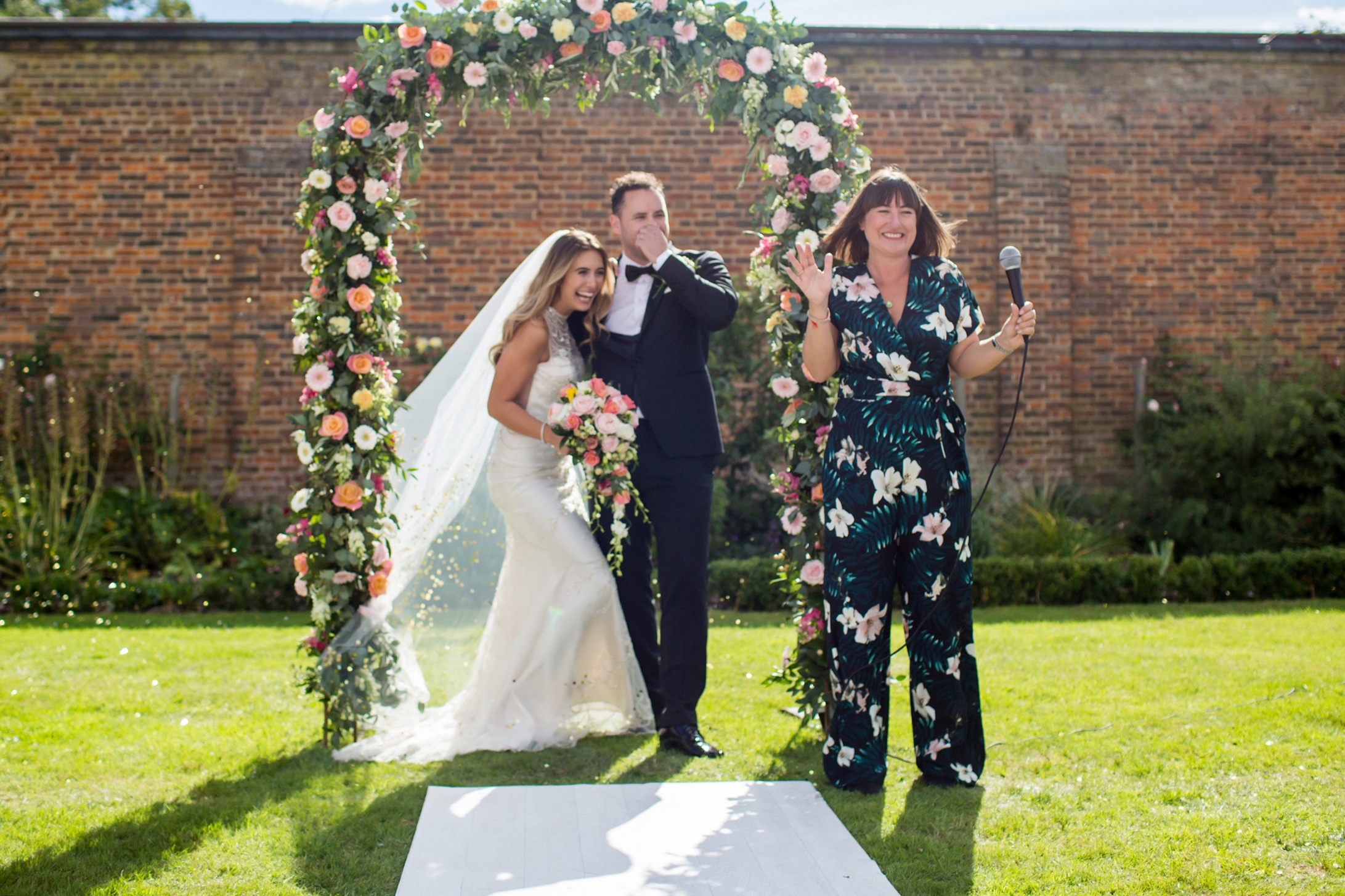Marriage, as an institution, is over 4000 years old estimates suggest. It predates the great monotheistic religions like Christianity. Indeed marriage had little to do with either love or religion for hundreds of years. In an increasingly secular world, the institution of marriage as defined by the church is under pressure. The desire to mark and celebrate a life changing event like marriage is stronger than ever, not so its religious sanctification. I spoke recently with humanist celebrant, Zena Birch, who marries couples in non-religious ceremonies that celebrate the union of two individuals rather than the institution of marriage.
In Europe, the role of the Roman Catholic Church in marriage was widely established by the 8th century. It remains that way even today. But people like Zena Birch are changing this. ‘I’m not so interested in the institution of marriage per se, but in the coming together of two people who have chosen to unite,’ she tells me. Originally trained in theatre, Zena is an excellent speaker. However the job involves much more than this. It all began quite unintentionally when Zena was asked by two Canadian friends, living in LA, to speak at their union. ‘ I wrote a ceremony based on what I had learnt about these two wonderful people’ she explains. They were very happy with the result. Zena began investigating the ways in which people could marry in the UK that did not include the church. She even looked into becoming a registrar but found that there were many things that could not be done in the name of secularism. For example, no music with any religious connotations, no references to a spiritual other of any kind. b
“It was the most extraordinary thing I had ever been part of’ – Zena Birch
For a few months Zena gave up on the whole idea but then attended a funeral by a humanist minister. ‘It was the most extraordinary thing I had ever been part of’, she enthuses. A rigorous selection procedure followed. Four months of training and a support network provided by Humanists UK and Zena was ready to preside over her first wedding ceremony as a humanist celebrant. She originally focusing only weddings but now does funerals and naming ceremonies too. ‘I decided to cut my cloth doing weddings because these are joyous occasions for which one has plenty of time to prepare’ she explains. Funerals are more difficult for a variety of reasons and naming ceremonies are becoming more popular but still fall frequently within the church’s domain. Ten years on and Zena has married gay and straight couples all over the world from the US to Spain and Sweden. Indeed she recently conducted the first gay marriage ceremony on the Amalfi Coast in Italy, for a Canadian couple.
Zena explains to me that she is deeply interested in the role of ritual in modern life. Clearly ritual has been part of human existence since the earliest times. Yet institutions like the Roman Catholic Church hijacked ritual and it is only now finding new avenues of expression. As Chair of the Humanist UK Ceremonies Board, Zena Birch is part of the campaign to make humanist ceremonies legal. She believes that ritual should be based first and foremost on inclusivity while religion is often about exclusivity. ‘Ceremony exists to elevate the ordinary’ she explains. While the church might achieve such an elevation through religious scripture and belief, a humanist approach focuses on the individuals involved. Specifically, the meaning that such an event has in their own lives including the important role played by family and friends.
Couples get ‘homework’.
To this end, Zena will typically spend between 9 months and a year preparing a wedding ceremony. ‘I really enjoy the process of my job’. This includes spending time with both bride and groom to get to know them and discuss what is important to them. Zena will also contact family and friends to gain further insights into the two individuals she will unite. She explains that her role in the whole process is quite unique because she is ‘ someone who the couple both meet neutrally for the first time’. She has also begun to include discussions about expectations regarding marriage, including children and unashamedly gives what she terms ‘homework’ to her couples. Although Zena describes it as fun and rewarding, she admits that there have been occasions when one of the partners has been reluctant to do it. Later however, they always thank me, she insists.
Over the years, Zena has also found that couples whom she married return to her for the naming ceremony of their first child. She finds this particularly rewarding. It also highlights the fact that for many, a familiar figure, someone who knows you and the family, is welcomed for these special and difficult times. This role has traditionally been filled by the local parish priest. But as fewer and fewer people attend church, there is a gap that needs to be filled.
‘I have the most amazing job in the world’ – Zena Birch
Zena tells me that since she started a decade ago, she has noticed a definite shift toward non-religious ceremonies. Reasons may include an increase in mixed marriages (couples with different religious backgrounds), gay marriages and atheists or agnostics who would like to mark the occasion without involving religious doctrine. The humanist celebrant is unequivocal when she tells me ‘ I have the most amazing job in the world’. Zena’s is a deeply human endeavour. One that speaks to our oldest and strongest needs to love, cherish and share our joy and pain with those to whom we are closest, irrespective of religion, race or sexual orientation.


One thought on “Marriage: getting a much needed modern make-over?”
Comments are closed.